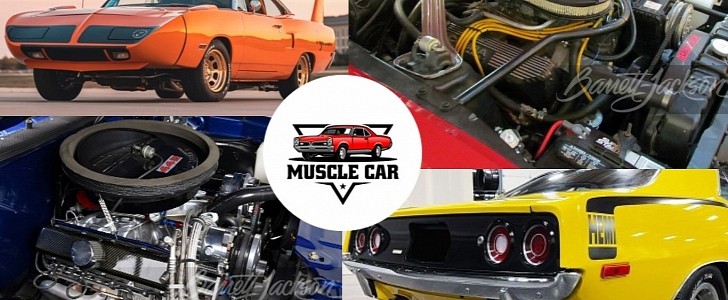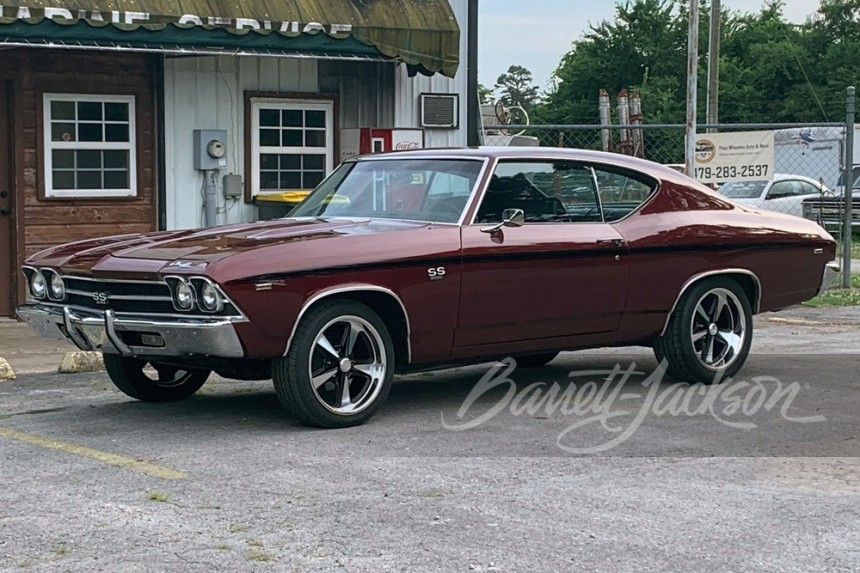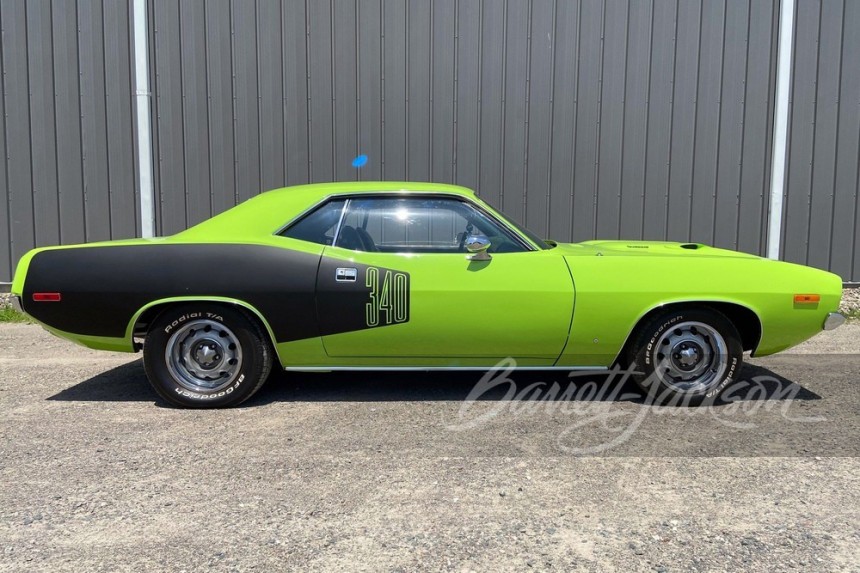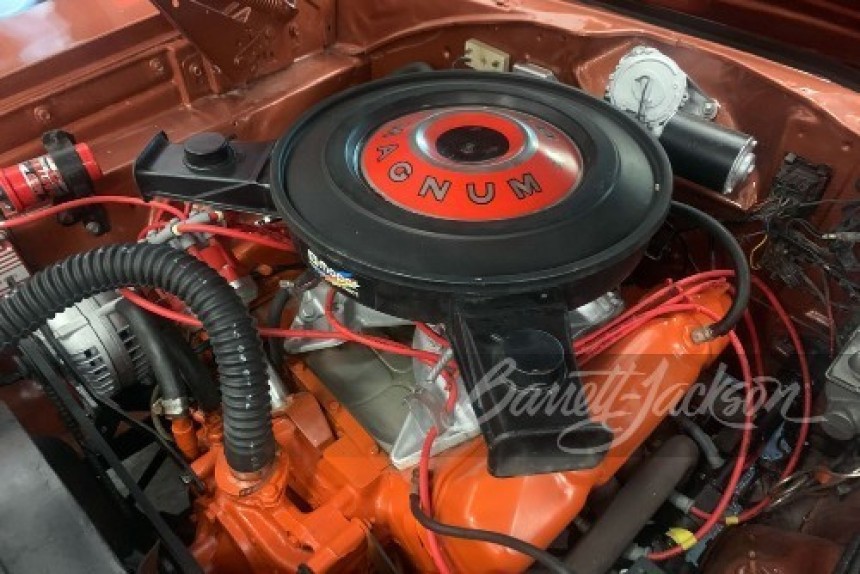I was recently given some guff regarding my statement that the death of the muscle car is imminent. I was told via messaging, muscle cars will always exist, they will just be electric.
Instantly, a portion of my Heineken draft ran up the back of my hard palate, into my nasal cavity, out my nose, and onto my Samsung. It's not the first time this has happened. I experienced a similar thing about 40 years ago in college but, with a far less tasty beer, and cellphones did not exist.
After cleaning up my wares, I decided to give it some additional thought. Guess what?... the 'Muscle Car' is on life support with no hope for recovery as manufacturers go electric. They will be rendered relics just like record albums and only exist in car collections. Let me explain.
Muscle exists in beings with a skeletal structure. The muscles pull and relax on the joints of bones of the structure, allowing movement. The size of any given muscle determines its strength or more appropriate for this article, its power.
Power in humans is easily measured by the amount of weight one is able to lift. If I can successfully do bicep curls with 25-pound dumbbells and my girlfriend cannot, that means I have more power. There is no way to plug a dumbbell in to increase her power.
Figuring out the power of a motor is a whole different story and one that was somewhat of a non-issue until sometime in the 1760s. A Scottish inventor by the name of James Watt was attempting to quantify the power of steam engines. He would study the workload of ponies and estimate that an average pony produced 22,000 foot-pounds of work each minute. He added 50% to his estimate and began referring to 33,000 foot-pounds as a single horsepower.
Why were horses used when elephants have more natural muscle mass? Simply because there were no elephants in the Scottish Highlands, I would imagine. How funny would it have to brag about your Boss Mustang as having 500 elephant-power anyway? Thank goodness for horses.
Horsepower, became 'THE' industry standard term of measurement to describe the power of an internal combustion piston engine that continues to exist today. Even though the watt is a unit of power, it will never be accepted as a measure to describe the power of an internal combustion engine in a car. Especially, an American car.
To be clear, this is not an American-centric diatribe, but I have to believe that when anyone anywhere on the globe mentions the term 'muscle car' thoughts of a Mustang, Camaro, GTO, Charger, or Challenger, develop.
Merriam-Webster defines 'muscle car' this way: "any of a group of American-made 2-door sports coupes with powerful engines designed for high-performance driving."
Horses are powerful and majestic, and some are even raced. Just like the muscle cars of the late 60s and 70s. The power of the engines in these cars will always be described in horsepower and no automobile that derives its power from an electric motor should be measured or described in terms of horsepower.
From a pure marketing standpoint, automakers cannot describe the power in their electric vehicles strictly in watts because it is not what people identify with in terms of automobiles. It may be a European thing, but keep in mind, the U.S. have not even adopted the metric system yet!
Semantics aside, I understand the relativity between the watt and horsepower, but if you have a car that does not have an internal combustion engine and has more than a single 12-volt battery, it is not and never will be a muscle car.
Muscle cars have engines, not motors! Muscle cars guzzle gas and are not plugged in. Muscle cars make noise.
Furthermore, automakers rarely refer to their electric products as 'cars'. They mostly refer to them as electric vehicles (EVs) and worse yet, battery electric vehicles (BEVs).
It is up to us, gearheads, to come up with a term to aptly define the group of powerful electric vehicles with which the general public will grow to identify with. I am putting forth 'WattVee's' for consideration.
It is just a matter of time before I'll be sitting on a barstool somewhere when a conversation with a youngster turns to automobiles and he describes his car as having 500 kilowatts of power. I will then promptly buy him a Heineken and say something so ridiculous that he, too, gets to experience the Heineken nasal wash.
After cleaning up my wares, I decided to give it some additional thought. Guess what?... the 'Muscle Car' is on life support with no hope for recovery as manufacturers go electric. They will be rendered relics just like record albums and only exist in car collections. Let me explain.
Muscle exists in beings with a skeletal structure. The muscles pull and relax on the joints of bones of the structure, allowing movement. The size of any given muscle determines its strength or more appropriate for this article, its power.
Power in humans is easily measured by the amount of weight one is able to lift. If I can successfully do bicep curls with 25-pound dumbbells and my girlfriend cannot, that means I have more power. There is no way to plug a dumbbell in to increase her power.
Why were horses used when elephants have more natural muscle mass? Simply because there were no elephants in the Scottish Highlands, I would imagine. How funny would it have to brag about your Boss Mustang as having 500 elephant-power anyway? Thank goodness for horses.
Horsepower, became 'THE' industry standard term of measurement to describe the power of an internal combustion piston engine that continues to exist today. Even though the watt is a unit of power, it will never be accepted as a measure to describe the power of an internal combustion engine in a car. Especially, an American car.
To be clear, this is not an American-centric diatribe, but I have to believe that when anyone anywhere on the globe mentions the term 'muscle car' thoughts of a Mustang, Camaro, GTO, Charger, or Challenger, develop.
Horses are powerful and majestic, and some are even raced. Just like the muscle cars of the late 60s and 70s. The power of the engines in these cars will always be described in horsepower and no automobile that derives its power from an electric motor should be measured or described in terms of horsepower.
From a pure marketing standpoint, automakers cannot describe the power in their electric vehicles strictly in watts because it is not what people identify with in terms of automobiles. It may be a European thing, but keep in mind, the U.S. have not even adopted the metric system yet!
Semantics aside, I understand the relativity between the watt and horsepower, but if you have a car that does not have an internal combustion engine and has more than a single 12-volt battery, it is not and never will be a muscle car.
Furthermore, automakers rarely refer to their electric products as 'cars'. They mostly refer to them as electric vehicles (EVs) and worse yet, battery electric vehicles (BEVs).
It is up to us, gearheads, to come up with a term to aptly define the group of powerful electric vehicles with which the general public will grow to identify with. I am putting forth 'WattVee's' for consideration.
It is just a matter of time before I'll be sitting on a barstool somewhere when a conversation with a youngster turns to automobiles and he describes his car as having 500 kilowatts of power. I will then promptly buy him a Heineken and say something so ridiculous that he, too, gets to experience the Heineken nasal wash.











